Alkaline Turmeric & Ginger Latte v2
Brand New & Updated: Turmeric & Ginger Latte v2
Since I published my first super-powerful, awesome-anti-inflammatory turmeric & ginger latte in 2010 it has been viewed millions of times, and I get emails regularly from people saying by adding just this to their morning routine, they are seeing a huge reduction in their inflammatory conditions and pain.
These two roots (turmeric, and ginger) are so potently anti-inflammatory, and I have now revamped my latte to be even more delicious!
Isn’t that all we need? Delicious and powerfully healthy?
Let’s get into it…
Turmeric & Ginger Latte v2
PrintAlkaline Turmeric & Ginger Latte v2
Ingredients
2 cups of unsweetened coconut milk
1 tablespoon of virgin coconut oil
1 inch of fresh turmeric root, grated (or 1 teaspoon of turmeric powder)
1 inch of fresh ginger root, grated
½ teaspoon of ground cardamom
¼ teaspoon of cinnamon
1 teaspoon of vanilla extract
A pinch of sea salt (to balance the flavors)
VERY Optional: Edible dried rose petals or lavender (for garnish and a floral note)
Instructions
In a small pot, gently warm the coconut milk over medium heat until it’s hot but not boiling.
Add the freshly grated turmeric and ginger to the pot, stirring to combine.
Stir in the ground cardamom and cinnamon, and continue to simmer gently for a few minutes to allow the flavors to infuse.
Remove from heat and mix in the coconut oil, vanilla extract, and a pinch of sea salt.
Strain the mixture through a fine mesh strainer into a blender to remove the solids.
Blend on high until the latte is frothy and oil fully emulsified.
Pour into a mug and garnish with edible dried rose petals or lavender to add a nice touch.
Why These Two Drinks are SO Powerful!
Turmeric and ginger are both from the same family and are two of the most powerful ingredients I’ve ever researched in the 15 years of running this site.
You can read more about the benefits of turmeric, and grab my turmeric user guide here. I strongly recommend checking both out.
They have been used for centuries in cooking AND as for their medicinal properties, with their use as a medicinal ingredient dating back to the ancient Egyptians and Indians. Both are certainly prominent in Ayurveda.
I’ve written a heap of guides in the past about how inflammation, low immunity, and acidity is the root cause of almost every condition – and these two teas will help address all three of those issues.
Benefits of Turmeric
- Turmeric is a powerful anti-inflammatory with studies showing it to be more effective than anti-inflammatory prescription drugs (NSAIDs)
- Therefore is powerful against arthritis
- Turmeric dramatically increases the antioxidant capacity in the body
- It improves brain function and dramatically decreases the risk of developing Alzheimer’s
- Turmeric lowers the risk of developing heart disease
- Can help prevent many types of cancer
- Turmeric is very powerful at preventing and reversing chronic fatigue conditions
- …and can also help prevent depression
[Note: medical and scientific references below]
Benefits of Ginger
- Ginger has strong anti-inflammatory properties (gingerols), just like turmeric and so can help treat and reverse muscle and arthritic pain.
- The anti-inflammatory properties of ginger also promote digestion and soothes colic, relieve nausea and intestinal gas
- Ginger also boosts the immune system and so is a perfect treatment for colds and other respiratory conditions.
- Like turmeric, ginger can help to prevent specific cancers: including colon and ovarian cancer
- Ginger has also been proven to relieve asthma symptoms
- Liver issues that are brought on by consistent medical needs (such as painkillers) can be pre-treated and prevented using ginger
- In animal studies, ginger has been proven to be more effective than certain prescription drugs in reducing blood pressure
- Ginger has also been shown to be just as effective as medication to treat migraines
- Ginger is also well researched in terms of it’s ability to decrease muscle pain and soreness
Enjoy the teas, summer or winter and let me know which you like the best!
Research Studies & References:
Abbey M, Noakes M, Belling GB, Nestel PJ. Partial replacement of saturated fatty acids with almonds or walnuts lowers total plasma cholesterol and low-density-lipoprotein cholesterol. Am J Clin Nutr 1994 May;59(5):995-9. 1994. PMID:16240.
Akoachere JF, Ndip RN, Chenwi EB et al. Antibacterial effect of Zingiber officinale and Garcinia kola on respiratory tract pathogens. East Afr Med J. 2002 Nov;79(11):588-92. 2002.
Amal S Abdel-Azeem, Amany M Hegazy, Khadiga S Ibrahim, Abdel-Razik H. Farrag, & Eman M. El-Sayed. “Hepatoprotective, Antioxidant, and Ameliorative Effects of Ginger (Zingiber officinale Roscoe) and Vitamin E in Acetaminophen Treated Rats. Journal of Dietary Supplements. September 2013, Vol. 10, No. 3 , Pages 195-209 (doi:10.3109/19390211.2013.822450). Accessed October 17th 2013.
Aranya Manosroi, Warangkana Lohcharoenkal, Parirat Khonsung, Worapaka Manosroi, and Jiradej Manosroi. “Potent antihypertensive activity of Thai-Lanna medicinal plants and recipes from “MANOSROI III” database”. Pharmaceutical Biology. November 2013, Vol. 51, No. 11 , Pages 1426-1434 (doi:10.3109/13880209.2013.796391). Accessed October 17th 2013.
Ensiyeh Jenabi. “The effect of ginger for relieving of primary dysmenorrhoea.” Journal of Pakistan Medical Association. Vol. 63, No.1, January 2013. Accessed October 17th 2013.
Maghbooli Mehdi, Golipour Farhad, Moghimi Esfandabadi Alireza, Yousefi Mehran. “Comparison Between the Efficacy of Ginger and Sumatriptan in the Ablative Treatment of the Common Migraine.” Phytotherapy Research. 9 MAY 2013. DOI: 10.1002/ptr.4996. Accessed October 17th 2013.
Balasubramanian K. Molecular Orbital Basis for Yellow Curry Spice Curcumin’s Prevention of Alzheimer’s Disease. J. Agric. Food Chem., 54 (10), 3512 -3520, 2006. 10.1021/jf0603533 S0021-8561(06)00353-0, Web Release Date: April 20, 2006. 2006.
Cruz-Correa M, Shoskes DA, Sanchez P, Zhao R, Hylind LM, Wexner SD, Giardiello FM. Combination treatment with curcumin and quercetin of adenomas in familial adenomatous polyposis. i>Clin Gastroenterol Hepatol. 2006 Aug;4(8):1035-8. Epub 2006 Jun 6. 2006. PMID:16757216.
Dorai T, Cao YC, Dorai B, et al. Therapeutic potential of curcumin in human prostate cancer. III. Curcumin inhibits proliferation, induces apoptosis, and inhibits angiogenesis of LNCaP prostate cancer cells in vivo. Prostate 2001 Jun 1;47(4):293-303. 2001. PMID:16280.
Ficker CE, Arnason JT, Vindas PS et al. Inhibition of human pathogenic fungi by ethnobotanically selected plant extracts. Mycoses. 2003 Feb;46(1-2):29-37. 2003.
Gururaj A, Kelakavadi M, Venkatesh D et al. Molecular mechanisms of anti-angiogenic effect of curcumin. Biochem Biophys Res Commun 2002 Oct 4;297(4):934. 2002.
Hidaka H, Ishiko T, Furunashi T et al. Curcumin inhibits interleukin 8 production and enhances interleukin 8 receptor expression on the cell surface:impacgt on human pancrreatic carcinoma cell growth by autocrine regulation. Cancer 2002 Sep 15;96(6):1206-14. 2002.
Ippoushi K, Azuma K, Ito H, Horie H, Higashio H. [6]-Gingerol inhibits nitric oxide synthesis in activated J774.1 mouse macrophages and prevents peroxynitrite-induced oxidation and nitration reactions. Life Sci. 2003 Nov 14;73(26):3427-37.
Kang BY, Chung SW, Chung W et al. Inhibition of interleukin-12 production in lipopolysaccharide-activated macrophage by curcumin. Eur J Pharmacol 1999 Nov;384(2-3):191-5. 1999.
Kang BY, Song YJ, Kim KM et al. Curcumin inhibits Th1 cytokine profile in CD4+ T cells by suppressing interleukin-12 production in macrophages. Br J Pharmacol 1999 Sep;128(2):380-4. 1999.
Kiuchi F, et al. Inhibition of prostaglandin and leukotriene biosynthesis by gingerols and diarylheptanoids. Chem Pharm Bull 40 (1992):387-91. 1992. Nature Immunology Online. Nature Immunology Online. 2001;10.1038/ni732. 2001.
Khor TO, Keum YS, Lin W, Kim JH, Hu1 R, Shen G, Xu1 C, Gopalakrishnan A, Reddy B, Zheng X, Conney AH, Kong AN. Combined Inhibitory Effects of Curcumin and Phenethyl Isothiocyanate on the Growth of Human PC-3 Prostate Xenografts in Immunodeficient Mice. Cancer Research. 2006 Jan; 66(2): 613-621. 2006. PMID:16423986.
Lim GP, Chu T, Yang F, et al. The curry spice curcumin reduces oxidative damage and amyloid pathology in an Alzheimer transgenic mouse. J Neurosci 2001 Nov 1;21(21):8370-7. 2001. PMID:16240.
Nagabhushan M, Amonkar AJ, Bhide SV. In vitro antimutagenicity of curcumin against environmental mutagens. Food Chem Toxicol. 1987 Jul;25(7):545-7. 1987. PMID:3623345.
Nagabhushan M, Bhide SV. Curcumin as an inhibitor of cancer. J Am Coll Nutr. 1992 Apr;11(2):192-8. 1992. PMID:1578097.
Nakamura K, Yasunaga Y, Segawa T et al. Curcumin down-regulates AR gene expression and activation in prostate cancer cell lines. Int J Oncol 2002 Oct;21(4):825-30. 2002.
Rhode JM, Huang J, Fogoros S, Tan L, Zick S, Liu JR. Ginger induces apoptosis and autophagocytosis in ovarian cancer cells. Abstract #4510, presented April 4, 2006 at the 97th AACR Annual Meeting, April 1-5, 2006, Washington, DC. 2006.
Srivastava KC, Mustafa T. Ginger (Zingiber officinale) and rheumatic disorders. Med Hypothesis 29 (1989):25-28. 1989.
Srivastava KC, Mustafa T. Ginger (Zingiber officinale) in rheumatism and musculoskeletal disorders. Med Hypothesis 39(1992):342-8. 1992.
Wigler I, Grotto I, Caspi D, Yaron M. The effects of Zintona EC (a ginger extract) on symptomatic gonarthritis. Osteoarthritis Cartilage. 2003 Nov;11(11):783-9.2003
Yang F, Lim GP, Begum AN, Ubeda OJ, Simmons MR, Ambegaokar SS, Chen PP, Kayed R, Glabe CG, Frautschy SA, Cole GM. Curcumin inhibits formation of Abeta oligomers and fibrils and binds plaques and reduces amyloid in vivo. J Biol Chem. 2004 Dec 7; [Epub ahead of print]. 2004. PMID:15590663.
Zhang L, Fiala M, Cashman J, Sayre J, Espinosa A, Mahanian M, Zaghi J, Badmaev V, Graves MC, Bernard G, Rosenthal M. Curcuminoids enhance amyloid-beta uptake by macrophages of Alzheimer’s disease patients. J Alzheimers Dis. 2006 Sep;10(1):1-7. 2006. PMID:16988474.
Risks and precautions:
According to the University of Maryland Medical Center, the use of herbs can interact with other herbs or medications.
Therefore it’s important to talk to your doctor before taking ginger or turmeric. You should not take ginger if you suffer from a bleeding disorder or take blood-thinning medications (such as warfarin or aspirin).
Also Note:
The information on this website is for informational and educational purposes only.
It is not an attempt by the writers or publisher to diagnose or prescribe, nor should it be construed to be such. Readers are hereby encouraged to consult with a licensed health care professional concerning the information presented, which has been received from sources deemed reliable, but no guarantees, expressed or implied, can be made regarding the accuracy of same. Therefore, readers are also encouraged to verify for themselves and to their own satisfaction the accuracy of all reports, recommendations, conclusions, comments, opinions, or anything else published herein before making any kind of decisions based upon what they have read.
If you have a medical condition, please consult your medical practitioner.
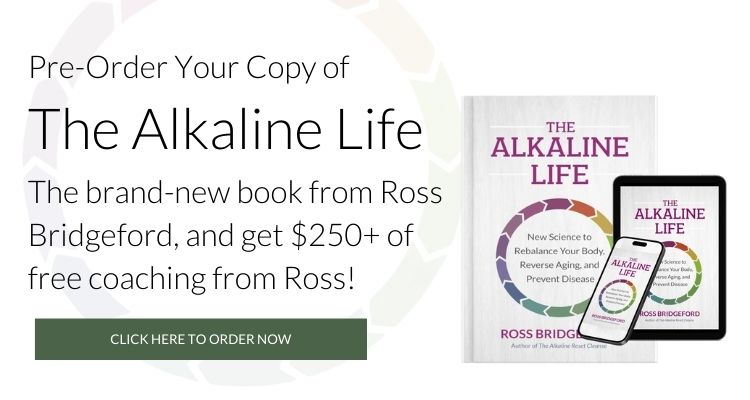

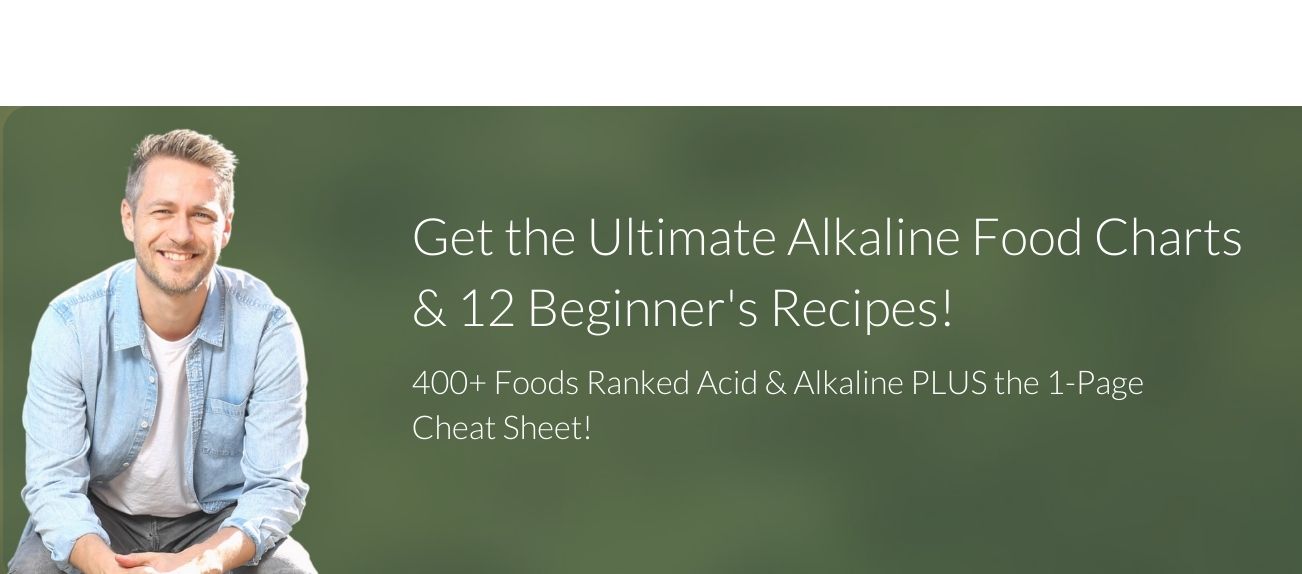

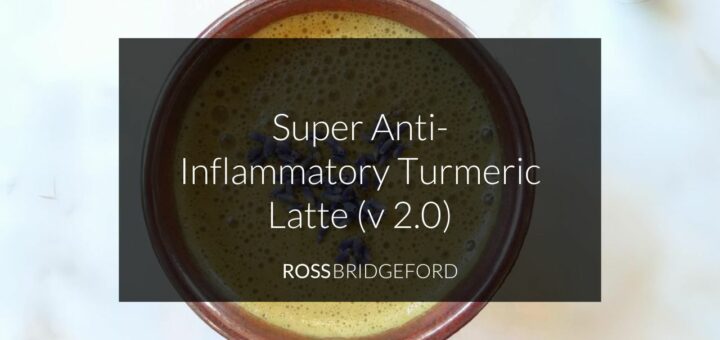
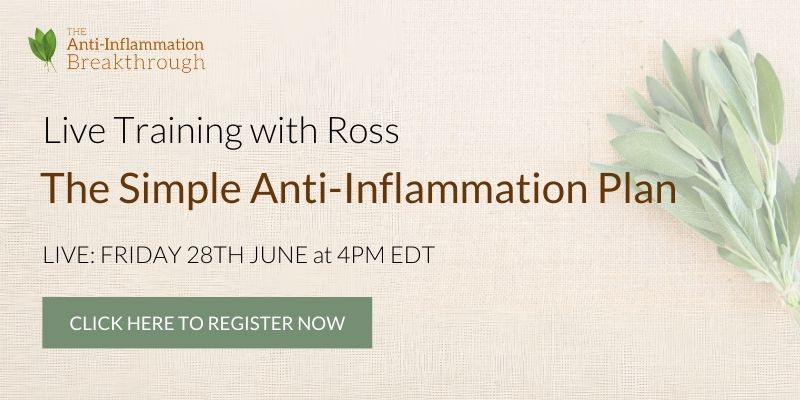
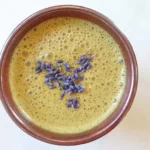

When you say unsweetened coconut milk for the Tumeric Latte, do you mean the coconut milk from a can or the coconut milk in the refrigerated section.
Is it OK to mince up the ginger and turmeric and freeze in coconut oil, then just add a cube to latte. This new latte recipe is fantastic, it took me a while to get used to drinking the old one bur this one WOW
Thank you for everything you do, I love it.
You make it all so simple and clear, I have just a small clarifying question: For the latte you use ‘coconut milk’. Do you use the one from a carton, more liquid, or from a can, more solid and rich?
With lots of gratitude
★★★★★
Which kind of coconut milk. should be used, full fit or some skimmed?